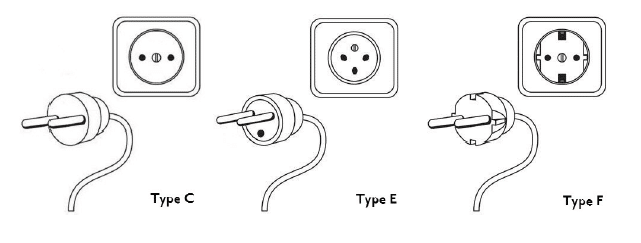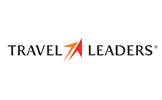Belgium

Fun Facts From Globus Tours
- Education is compulsory in Belgium up to the age of 18, which makes it the highest in the world and also one of the rare countries to have such a law.
- After the U.S., Belgians are the most enthusiastic collectors of discount coupons in the world.
- Belgium produces 220,000 tons of chocolate every year. The world’s biggest chocolate selling point is the Brussels National Airport.
- Antwerp is known for diamond dealing, cutting, and polishing. More than 90% of the world’s raw diamonds are negotiated and distributed in Antwerp.
With just over 11.5 million inhabitants, Belgium is one of Europe’s smaller countries, yet it is not short on pleasant surprises! Great works by painters Rubens, Memling, Van Eyck, and Brueghel, and Belgium’s ancient cities built of brick and stone with soaring bell towers and majestic spires, recall a past golden age when great fortunes were made from the production of cloth and invested in precious works of art and architecture. Belgium’s beautifully preserved medieval cities—Brussels, Antwerp, and Bruges—created a definitive style of architecture adopted in several other European states. The lace and tapestry you may have admired in the Vatican were mostly created and woven in Belgium.
Here, where the Protestants of the Low Countries opposed the Spanish Hapsburgs and where Napoleon was defeated at Waterloo in 1815, an independent constitutional monarchy was created in 1830. Belgium has three languages—Dutch, French, and German—and an equally varied landscape. Wallonia is hilly; the Ardennes are heavily wooded and rugged; and the western area of Flanders, in the delta of the river Scheldt, is flat, agricultural land. Brussels, the capital, has a population of one million, and it houses the headquarters of both the N.A.T.O. and the European Union Community. The Grand’ Place in the historic center is a UNESCO World Heritage Site with its magnificent 17th-century guildhalls.
Belgium is also known among musicians as the place where the saxophone was invented in the 19th century by the instrument maker Adolphe Saxe. It is renowned for its heavenly chocolates (be sure to try the real thing), waffles, and sophisticated beer culture (they say there are over 800 varieties).
Belgium is affluent, creative, and dynamic, and it holds a key role in molding Europe’s future.
VISAS, PASSPORTS, AND OTHER ENTRY REQUIREMENTS
Visas to Belgium are not required for US citizens. If you hold a passport from another country, please check with your local consulate about requirements for travel to Belgium. All passengers traveling internationally are required to have a passport. Please carry proper identification (your passport) on you and do not leave it in your suitcase or hotel room.
It is advisable to carry your passport with you at all times.
COUNTRY CODES
The country code for Belgium is 32. When calling to Belgium from overseas, dial your international access code (011 from the US/Canada) followed by the country code, area code, and phone number. Phone numbers in Belgium are eight digits in length (including the area code). Dialing from the US/Canada: 011 32 + ## ### ###.
CURRENCY
The official currency of Belgium is the Euro.
Bank hours: 9 a.m. to 4 p.m., Monday through Friday.
Euro coins differ according to country, but they can be used in any Eurozone state. Bank notes are of uniform EU design (depicting European architectural styles throughout seven ages, from Classical to Modern times).
1 EURO (€) = 100 Cents (c)
- Bank note denominations: €5, €10, €20, €50, €100, €200, €500
- Coin denominations: 1c, 2c, 5c, 10c, 20c, 50c, €1, €2
For the most current exchange rates, please go to our website at Globusjourneys.com/Currency. Credit cards are widely accepted (mostly Visa and MasterCard), and you should have no problems using them in larger shops and restaurants. Smaller shops may ask you to pay in cash or have a minimum amount required to use a credit card.
BUDGETING AND SHOPPING
The following budget guidelines are just approximate values or starting values for meals and are per person. Actual prices will vary widely by restaurant and city within a country but below are some averages as provided by our experienced personnel.
- The approximate cost of a soft drink/mineral water/coffee is €2-3.50.
- An average lunch consisting of a salad or sandwich and a soda or water starts at approximately €10-15.
- Dinner at a mid-range restaurant with dessert and a non-alcoholic beverage starts at approximately €30-40.
Please note that soft drinks and mineral water are often as expensive, if not more expensive than wine or beer.
Shopping specialties: chocolates, lace, tapestry.
Counterfeit and pirated goods are widely available; be aware that under local law transactions involving such products may be illegal, and bringing them home may result in confiscation and fines.
Sales tax or VAT (value added tax) is included on price tags. To obtain VAT refunds (which may take up to three months to process) special forms usually have to be stamped by Customs; please ask for a taxfree shopping form with each purchase and follow the instructions for completion; not all shops may offer this service, and minimum amounts may apply. Customs import charges on items shipped home are not included in purchase prices.
TIPPING
A service charge is included on your bill in restaurants in Belgium. Tipping in addition to the service charge is done as a sign of appreciation, and usually an additional €0.50-2.50 is acceptable.
- For taxis, round up the fare to the nearest 1-2 Euro as the tip.
- Tip hotel staff €1 for room service.
ELECTRICITY AND ELECTRICAL OUTLETS
Outlets
Voltage for outlets is 230V. North American voltage is generally 110V. Therefore, you will need a converter for your travels. Adapters will be necessary to adapt your plug into the outlet, but these may not convert the voltage, so both devices are necessary. Belgium uses a round, 2-prong plug that looks like:

TEMPERATURES
Belgium has a mild climate year-round with mild summers and cold winters. Summers can be warm, though at times can cool and be rainy. Snow is likely in the winter. To help you plan, below are average low and high temperatures for Belgium.

To convert to Celsius, subtract 30, then divide by 2. While not exact, this simple formula will give a close estimation.
FOOD SPECIALTIES
Chocolates, waffles, and beer.
FEW WORDS OF THE LOCAL LANGUAGE
Dutch:
![]()
Good morning: Goede morgen, Good afternoon: Goede middag, Good evening: Goede avond, Goodbye: Tot Ziens, Yes: Ja, No: Nee, Please: Alstublieft, Thank you very much: Dank u wel, How much does it cost?: Wat kost dit?, 1: Een, 2: Twee, 3: Drie, 4: Vier, 5: Vijf, 6: Zes, 7: Zeven, 8: Acht, 9: Negen, 10: Tien, Where is…?: Waar is…?, Admission free: Vrije toegang, No Smoking: Verboden te roken, Entrance: Ingang, Exit: Uitgang, Restaurant check/bill: Rekening.
&npsp;
French:
Good morning/day (until 5 p.m.): Bonjour, Good evening: Bonsoir, Goodbye: Au revoir, Please: S’il vous plaît, Thank you: Merci, Yes: Oui, No: Non, Do you speak English?: Parlez-vous anglais?, I don’t understand: Je ne comprends pas, Please write it down: S’il vous plaît, écrivez-le, How much?: C’est combien?, 1: Un, 2: Deux, 3: Trois, 4: Quatre, 5: Cinq, 6: Six, 7: Sept, 8: Huit, 9: Neuf, 10: Dix, Where is…?: Où est…?, Telephone: Le téléphone, Bathroom: Les toilettes, Tea: Thé, Coffee: Café, Bottled water: De l’eau minérale (carbonated=eau petillante, non-carbonated=eau plate), Cheers!: Santé!, Restaurant check/bill: L’addition, Waiter: Monsieur (not garçon), Waitress: Mademoiselle, Have a nice day!: Bonne journée!.
German:
Good morning: Guten Morgen, Good Day: Guten Tag, Good evening: Guten Abend, Please/You’re welcome: Bitte, Thank you: Danke, Yes: Ja, No: Nein, Do you speak English?: Sprechen Sie Englisch?, I don’t understand: Ich verstehe nicht, Please write it down: Können Sie das bitte aufschreiben? How much?: Wieviel kostet das?, 1: Eins, 2: Zwei, 3: Drei, 4: Vier, 5: Fünf, 6: Sechs, 7: Sieben, 8: Acht, 9: Neun, 10: Zehn, Where is…?: Wo ist…?, Telephone: Telefon, Bathroom: Toilette, Tea: Tee, Coffee: Kaffee, Bottled water: Mineralwasser (carbonated=mit Kohlensäure, non-carbonated= ohne Kohlensäure), Cheers!: Prost!, Restaurant check/bill: Die Rechnung.
U.S. DEPARTMENT OF STATE COUNTRY INFORMATION
Additional country-specific information for US citizens can be found on the US Government’s website www.travel.state.gov. Here, you can find the most up-to-date information about destination descriptions, passports/visas, safety and security, transportation, travel local laws, alerts/warnings, vaccinations, and more. For citizens of other nations, we recommend you consult your local consulate for travel information, regulations, and requirements.









